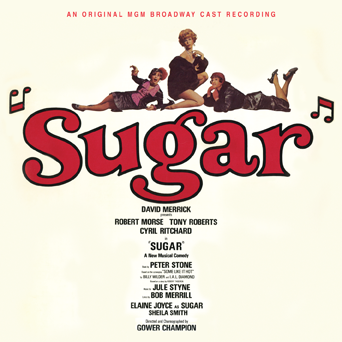The first musical I ever appeared in was my high school’s production of Funny Girl eleven years ago. (I’ll save my first audition experience for another day). The show is something of an unusual choice for that scholastic level, as it requires a multifaceted leading lady who can sing, dance and act her way through ten of the show’s numbers and basically carry the entire evening. I was enthralled by the whole prospect, and ended up playing eight or nine different bit parts throughout the evening. (Every time they needed a body for something, I was always available).
It marked the first time I heard the thrilling Jule Styne-Bob Merrill score and how I acquired both the original Broadway cast album and film soundtrack for reference. (They followed the Westchester Broadway Theater’s lead and interpolated “Roller Skate Rag” and “I’d Rather Be Blue” in place of the “Cornet Man” – in hindsight, a really poor choice). What it taught me, though, is that an original cast album – especially in the Golden Age – didn’t capture every single moment. There were reprises, encores, dances, incidentals and underscoring that were left off the record (including my big solo, as Heckie the cab driver, leading the final section of “If a Girl Isn’t Pretty”). It also gave me the opportunity to examine the difference between a stage score and its adaptation for film. I really don’t like any of the songs added to the film (“My Man” is its own special case) and definitely miss “Who Are You Now” and the stunning “The Music That Makes Me Dance.”
Getting to the original, I have to confess I’m not the biggest Streisand fan. However, I do enjoy the youthfulness and zeal that went into her work up until around 1968. I enjoy “Miss Marmelstein” on the original cast album of I Can Get It For You Wholesale and her work on the Funny Girl cast album, but her singing from the film onward doesn’t really do it for me. The film adaptation of Funny Girl is entertaining if overlong and the less said about Hello, Dolly! and On a Clear Day You Can See Forever the better. (Don’t get me started on the rumored film remake of Gypsy; they’ll need to dust off the Lucy in Mame vaseline-coated lenses for that).
However, here are brief glimpses into the young starlet who created a sensation in NY as Fanny Brice and the production that ran for 13. It looks like someone’s home movies taken at the Winter Garden, the sound snippets sound like they are part of that legendary recording of Barbra’s final Broadway performance (where she sang “My Man” at the curtain call). Unlike other musicals with gargantuan leading lady turns like Gypsy, Funny Girl has had more difficulty getting a major revival as the role is so closely identified with Streisand (who lost the Tony, but won the Oscar). But then again in spite of a shared composer and some good songs, Funny Girl is no Gypsy. A Broadway revival is currently planned for 2012.
%CODE1%
%CODE2%
%CODE3%
%CODE4%


